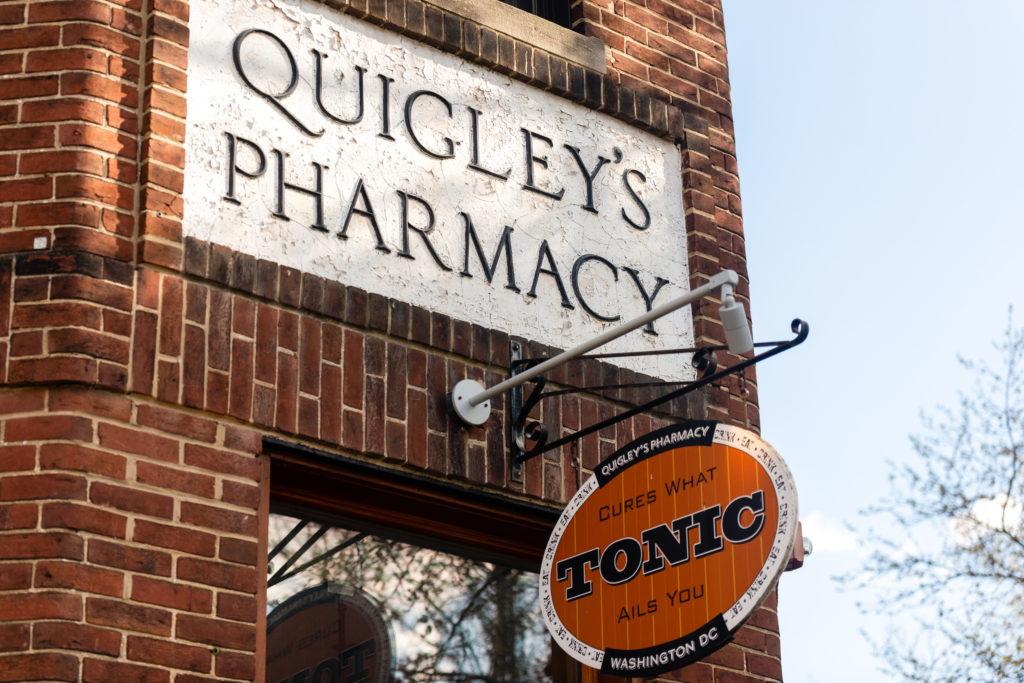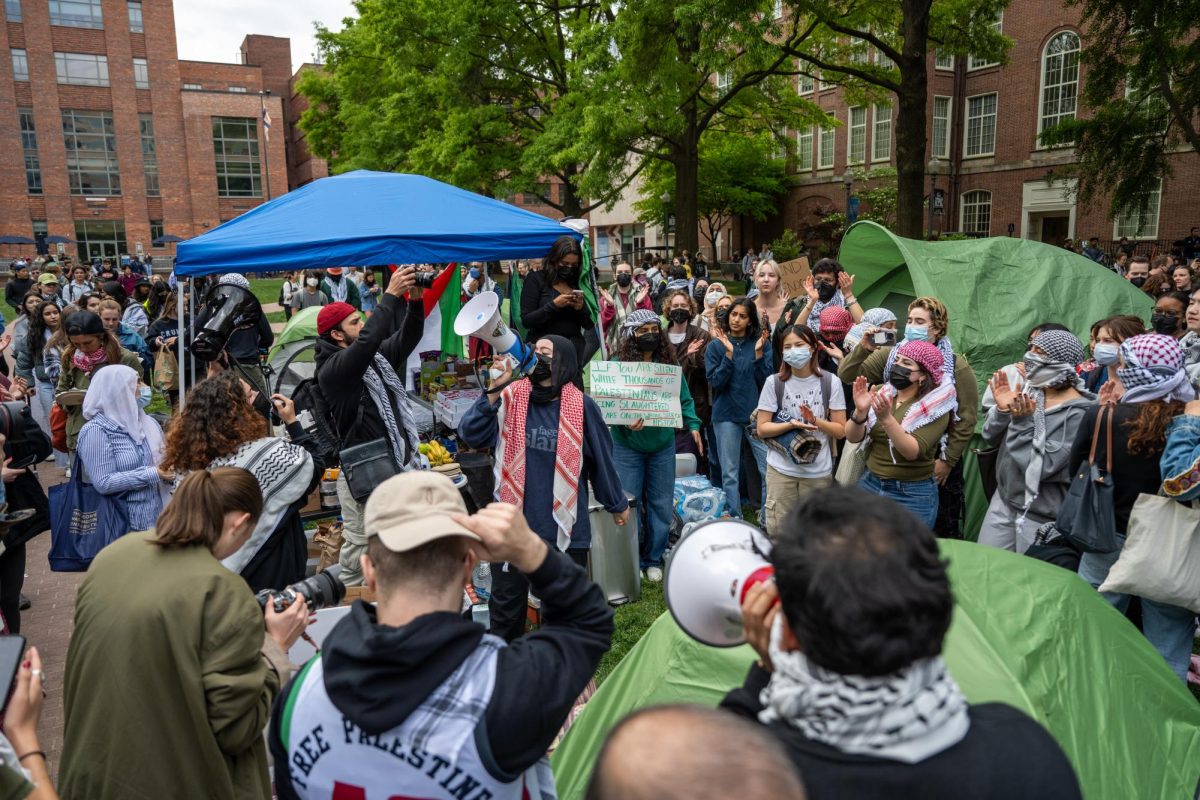Jeremy Pollok, the managing partner of Tonic, said he logged on to apply for the U.S. Chamber of Commerce’s small business coronavirus relief program when the application opened at noon a few weeks ago.
But by 12:01 p.m., the website had crashed.
As many businesses on campus have shuttered under financial stress or in compliance with Mayor Muriel Bowser’s order to close non-essential businesses, their owners were denied or haven’t heard back from government coronavirus relief programs. Owners said the lack of funding for Foggy Bottom businesses has prompted closures, furloughs and a struggle to pay expenses over the past few months.
Pollok said Tonic closed March 15 after it could no longer afford to stay open with just carryout orders. He said he applied for five public- and private-sector support programs over the past few weeks, including the D.C. Small Business Recovery Microgrants Program, which offers small amounts of money to small businesses in the District.
He said the only program that has provided him funding has been the federal government’s Paycheck Protection Program. He said Tonic has met eligibility requirements for most of the programs he applied for based on location, restaurant size and number of employees.
The PPP grants small businesses and nonprofits loans for operating costs, according to the Small Business Administration’s website. The government will forgive loans that the business uses toward payroll, mortgage interest rates, rent and utilities, the website states.
“Mostly it’s just first come, first serve,” Pollok said. “Whoever can get in line first gets in.”
He said the applications he’s filled out to receive funding were fairly straightforward, but the aid programs are receiving a flood of applications from struggling businesses, which makes each individual business’s chances of receiving funding slim.
“Unfortunately, it’s more difficult on their end because so many people applied that it’s taking them a long time to sort through it,” he said.
Pollok said the PPP, which grants businesses a loan for 2.5 times payroll, has provided sufficient funding for Tonic to reopen from noon to 8 p.m. for takeout and delivery orders beginning this week.
Pollok launched a GoFundMe fundraiser last month to raise money for the nearly 80 employees that he had to furlough after closing. The fundraiser has racked up more than $15,000 for his staff as of Sunday.
“We’re taking it day-by-day and week-by-week and re-evaluating,” Pollok said. “The PPP gives us some breathing room in some aspects, and it’s great for the staff.”
GWorld vendors like Duke’s Grocery and Uptowner Cafe told The Hatchet in March their businesses closed or significantly reduced service after business plummeted and students cleared campus.
Kathryn Hartig – a spokesperson for the Office of the Deputy Mayor for Planning, which manages the D.C. Small Business Recovery Microgrants Program – said the office received 7,000 applications as of Friday. She said Bowser and the D.C. Council established the program on March 17 as part of emergency COVID-19 legislation.
“The D.C. Small Business Recovery Microgrants Program, which was created through the D.C. Council’s COVID-19 Response Emergency Amendment Act of 2020, was created to provide flexible financial support to help D.C. businesses meet their short-term financial needs in response to COVID-19,” Hartig said in an email.
The Office of the Deputy Mayor for Planning added $8 million to the fund April 29, according to a press release.
Hartig said the mayor has received positive feedback through phone calls and emails from businesses who have received grants thus far.
Usman Saleem, the owner of Uptowner Cafe, said he had to close the store and lay off all employees in March, when the shop is typically packed, because of the pandemic.
“Students are prepping for exams, so they’re on campus a lot,” he said. “We make a lot of our income during that time, especially to sustain us during the summer months.”
Saleem said he applied a month ago to the PPP, the D.C. Small Business Recovery Microgrants Program and the Economic Injury Disaster Loan Emergency Advance, which grants loans to agricultural and food businesses, but hasn’t heard back from any. He said the government aid would allow him to relieve the financial stress many have experienced during the pandemic.
“We would be able to pay them as well so it would affect their families and their lives because they wouldn’t be stressed out,” he said.
Amir Mostafavi, the founder and CEO of South Block, said sales are down after its GW shop closed and other locations began offering takeout and curbside delivery. He said the business has received a PPP loan after a temporary waiting period and will use the grant for payroll, rent and utility expenses.
“It was pretty unnerving,” he said in an email. “We had to sit in the dark for weeks not knowing where our application stood in the process.”
University spokeswoman Crystal Nosal said officials have been in contact with GWorld businesses to confirm their operating hours and update the GW dining website for the 200 students still stuck in residence hall rooms after the University shut down campus in March.
“With regard to the dining vendors who are also tenants in GW-owned properties, the University recognizes they are a vital part of our University community,” Nosal said in an email. “We look forward to working with each of them for successful re-entry to business in a post-COVID-19 world.”
She said GW Dining has shared up-to-date information with vendors regarding local and federal legislation created to assist business owners and tenants. She said officials can’t provide a definitive plan for relief for any of the University’s retail tenants because of the “uncertain trajectory of the pandemic.”
Nosal said some vendors have launched their own relief efforts for the community during the pandemic, like the meals TwentyTables has donated to the GW Hospital.
“The University will work with each individual tenant to map out a plan at the appropriate time for resuming operations when there is more certainty regarding when orders will be lifted and businesses allowed to resume operations,” Nosal said.







